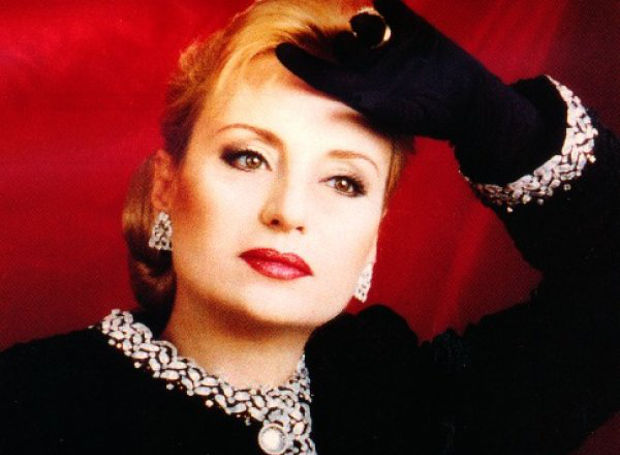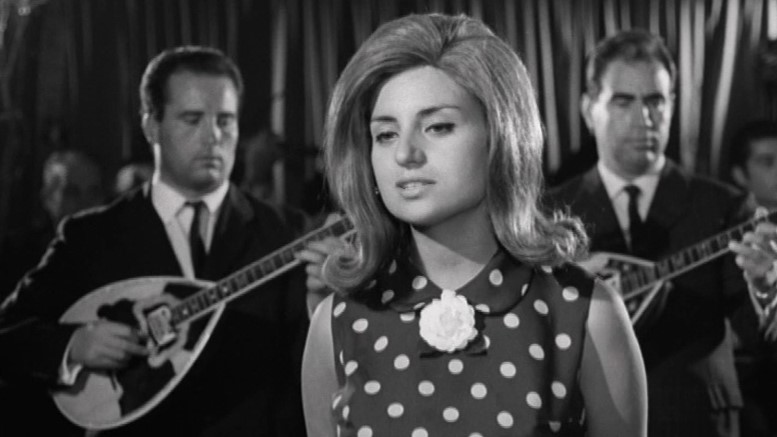Vicky Moscholiou was an iconic Greek folk singer who made her stage debut next to Grigoris Bithikotsis at the Triana club in Greece.
Early Life:
Vicky Moscholiou was born on May 17, 1943 in Metaxourgeio in Athens and lived her childhood years in Aigaleo.
As a 13-year-old, Vicky worked in a factory as a ribbon maker to support her family. Her strict parents, however, do not allow her to work at night.
Her first break came in 1962 through the intervention of her cousin Effie Linda. On Easter Sunday, Vicky made her stage debut next to Grigoris Bithikotsis at the Triana club.

Career:
Two years later, as Vicky was performing at the club, Stavros Xarchakos hears her by chance. He was looking for a new voice to perform the now-legendary song Hatike to feggari in the movie Lola with Nikos Kourkoulos and Jenni Karezi.
It is the beginning of a brilliant career, as countless collaborations follow with almost all the leading composers and lyricists: Stavros Xarchakos, Yiannis Spanos, Giorgos Zambetas, Apostolos Kaldaras, Mikis Theodorakis and Marko Vamvakaris.
A few of her well-known Greek folk songs include The trains that left, The evenings, The emigrants, The archontorebetika, This is how life is, and A night in Larissa.
In the early 1960s, Vicky started concerts with Stavros Xarhakos and Grigoris Bithikotsis all over Greece, while in 1968 she held the first major concert of a Greek artist in Cyprus at her own expense.
Vicky was one of the first in Greece to sing both in night clubs and concerts, and she also sang in the royal courts of Greece, Persia and Jordan.
Personal Life and Death:
In 1967, Vicky married the soccer legend Mimis Domazos, although later they divorced. They had two daughters, Evangelia and Rania.
She died in Athens in 2005 following a two-year battle with cancer, leaving a legacy of significant cultural achievements.
Source: San Simera.

